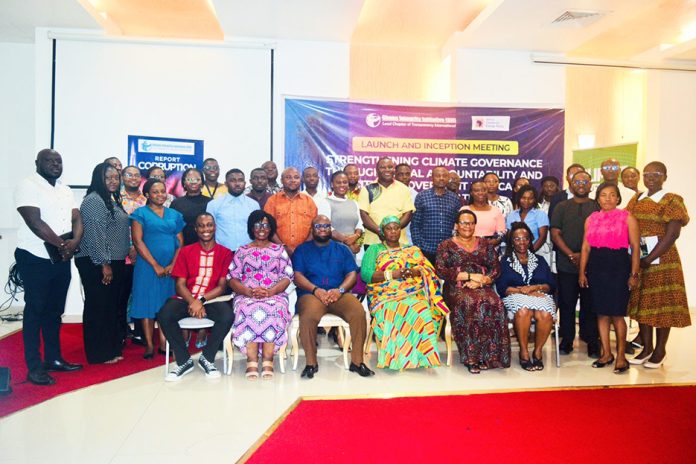The Ghana Integrity Initiative (GII) has highlighted the urgent need for improved governance in climate-related matters to combat the escalating threat of climate change.
Executive Director of GII, Mrs. Mary Awelana Addah described climate change as one of the most critical challenges facing the world today, with significant effects on the environment, communities, and various economic sectors.
During the launch of GII’s new project, “Strengthening Climate Governance through Social Accountability and Citizen Oversight in Local Climate Initiatives,” Mrs. Addah explained that the project aims to ensure that public investments in climate initiatives, particularly in the most vulnerable districts, are managed to the benefit of all stakeholders involved.
The project aims to ensure that public investments in climate initiatives, particularly in the most vulnerable districts, are managed to the benefit of all stakeholders involved.
The project is supported by the Extractive Industry and Climate Change Governance Fund, with collaboration from the Africa Centre for Energy Policy (ACEP). It seeks to enhance local participation, foster transparency, and improve sustainable climate governance practices in the targeted districts.
Mrs. Addah emphasized that Ghana’s economy is heavily dependent on sectors such as agriculture, fisheries, and forestry, which are particularly sensitive to climate change.
She stressed the importance of social accountability and citizen engagement to ensure the effective management of climate investments.
“We are empowering citizens to take an active role in climate governance, which is essential to protecting our communities and ensuring environmental sustainability,” she said.
Mrs. Addah further highlighted the role of community-driven climate action, noting that achieving Ghana’s climate goals depends on the active participation of local populations. “Through collective efforts, we can reduce the detrimental effects of climate change,” she remarked.
Mr. Kodzo Yoatse, Policy Lead for Petroleum and Conventional Energy at ACEP, also emphasized the need for greater public education and awareness on climate change issues. He reiterated ACEP’s dedication to addressing climate change concerns, stressing that public involvement is crucial to the success of any climate-related initiative.
“It’s not enough to develop strategies for combating climate change; proper implementation and community involvement are key to their success,” he said.
In support of the initiative, the Queen Mother of Mamprobi, Naa Obeye Dromo I, underscored the importance of involving local communities in climate efforts. She stressed that true progress can only be made when the people most affected by climate change are actively engaged in mitigation efforts.









